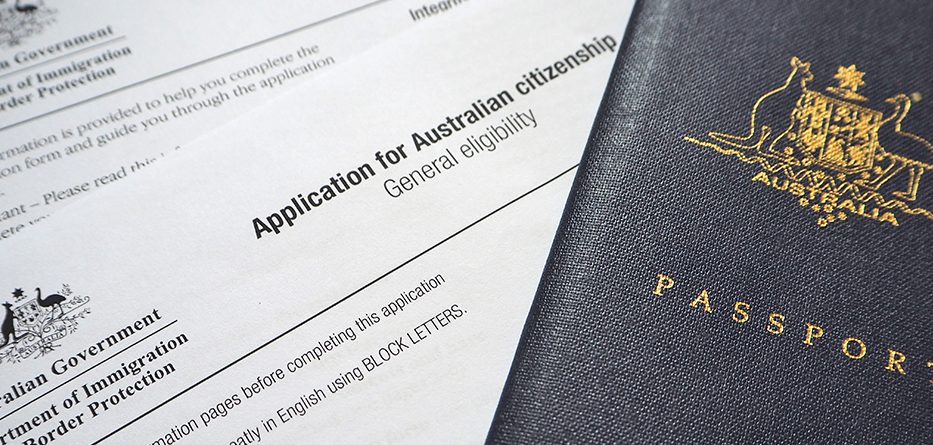Citizenship celebrations in Town Halls are happy events. They mark a new relationship to Australia. This relationship, though, is only one of the network of relationships that link the people attending the ceremony. These are evident in the variety of dress. Some wear veils, others saris; young men wear Manly rugby sweaters and Liverpool soccer strip, new citizens are joined by third generation Australians. At the end of the ceremony the new citizens are presented with a small Australian bush to plant. While it grows in the garden so will people grow in their identity as their relationships deepen and broaden.
The grant of citizenship is a legal act. It is not the beginning of Australian identity but marks the recognition by the Government that a person is entitled to the privileges of citizenship, and the acceptance by the new citizen of the responsibilities attached to it. When people apply for citizenship their relationship to Australia already forms a significant strand of their identity.
It is one of the many threads in the network of relationships that make up their identity – to family and friends, to their place of origin, to their fellow migrants and language groups, to the groups and places where they associate, to the communities shaped by shared religious faith, political views, to school communities, to the suburbs they live in, to companions in their workplace, and to the relationships formed by their experience.
All these relationships are interlocking, and with time the strands are more deeply linked to one another. They shape a distinctive way of being Australian. The stronger and more interconnected they are, the greater the strength they give to what it means to be Australian.
Some people, particularly at election times, criticise the diversity of origin and strength of continuing relationships as a weakening of Australian citizenship and identity. It is really an enrichment, as we can see through such simple examples as the variety of eating places that we enjoy as the result of immigration. Our national identity becomes richer through diversity, as long as our networks of relationships constantly broaden out to link us with people and groups different from ourselves. In all our work at Jesuit Communications the making of connections is central to the lives of the vulnerable young people we serve.
The relationship we have to Australia by citizenship means that we have a responsibility to accept the laws of Australia and to accept the responsibilities of citizenship. The other relationships that shape our identity do not override that.
But this does not mean that our commitment to Australia is deeper than our other relationships. The early Christians had to grapple with tension between Roman laws that made Christian worship illegal and their commitment to Christ. They saw themselves as resident aliens, bound to commit respect the laws of the Empire, but ready to suffer for disobeying unjust laws that forced them to worship state gods. The network of relationships that they acknowledged had God at its centre, and their imperial citizenship stood under that.
With citizenship, too, we inherit the flaws of our nation as well as its strengths. We have a public duty to try to make the nation a better place – a place noted for hospitality and respect for all its citizens and for other nations. This is the kind of community that at Jesuit Social Services we try to shape or the people with whom we work. As they gain confidence in connecting with people and with workplaces the nation will be stronger for it. The network of relationships is strongest when it encourages deep connections between people in different groups, and sees difference as giving strength to the unity of the nation.
Fr Andrew Hamilton SJ writes for Jesuit Communications and Jesuit Social Services.








